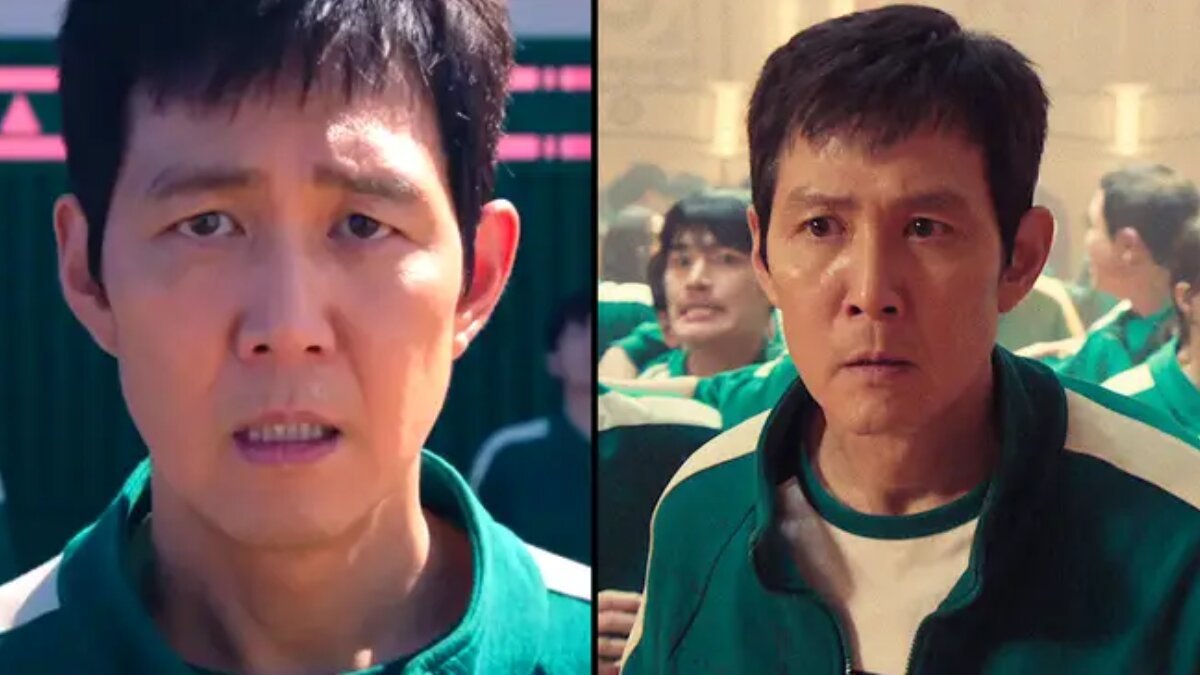When Squid Game Season 1 ended, Seong Gi-hun had defied all odds. He walked away from the game alive, a billionaire, yet deeply broken. Instead of finding peace, he found emptiness. His dyed-red hair and rejection of a reunion with his daughter in the finale hinted at something darker: he wasn’t done. He couldn’t be done. And when he steps back into the nightmare in Season 3, it’s not for survival—but for a cause.
But was Gi-hun right to return? Could one man genuinely bring down such a vast and merciless system from within? Or did his choice endanger others and repeat the same cruelty he once fought against?
This question—simple on the surface—is at the heart of Squid Game’s evolving story. Let’s unpack the emotional, moral, and political layers behind Gi-hun’s controversial return.
1. The Moral Argument: Justice vs. Obsession
From a moral standpoint, Gi-hun’s return represents both courage and contradiction.
On one hand, he’s doing what no one else dared to do. He’s confronting a system built to dehumanize the poor and entertain the elite. He refuses to spend “blood money” while the organization continues exploiting people. This, in essence, is noble.
But on the other hand, Gi-hun’s actions are fueled not just by justice—but by guilt and obsession. He chooses to fight by rejoining the game, dragging others into the same trauma he once endured. Is that truly heroic—or a form of self-destruction disguised as martyrdom?
2. The Strategic Argument: Was There No Other Way?
Some argue that Gi-hun could have gone public, exposed the VIPs, or leaked the footage instead of re-entering the arena. But the truth is, the organization is powerful, global, and deeply protected. As Season 3 reveals, whistleblowing from the outside was nearly impossible—anyone who tried was silenced or disappeared.
Gi-hun, knowing the ins and outs of the game, believed he had the best shot at dismantling it from within. His decision was tactical. He knew the rules. He had experience. And he had nothing left to lose.
So while dangerous, his return wasn’t blind—it was calculated. He went back, not to play—but to sabotage.
3. The Emotional Argument: Grief and Survivor’s Guilt
Gi-hun’s psychological state can’t be ignored. Season 2 briefly explored his deep trauma—he couldn’t touch the prize money, couldn’t face his daughter, and couldn’t connect to the real world. Survivors often carry immense guilt, and Gi-hun was no different.
He blamed himself for Ali, for Sae-byeok, for Sang-woo. His return was, in part, a twisted act of redemption. If he could stop others from dying the way they did—maybe he could forgive himself.
But herein lies the irony: in trying to save future players, he endangered more lives. Can that cycle of violence ever truly be justified?
4. Was He Selfish or Brave?
This is where fan opinion splits sharply. Some believe Gi-hun’s return was an act of ego—wanting to “be the hero,” even if it meant others suffered. After all, no one asked him to go back. He wasn’t invited—he sought it out.
Others see it as a rare example of someone standing up when everyone else ran. He chose discomfort over denial, sacrifice over safety. If not Gi-hun, then who?
The truth is likely somewhere in between. He was brave—and he was broken. He was selfish—and selfless. That duality is what makes his arc so real.
5. Did It Work? And Was It Worth It?
By the end of Season 3, Gi-hun’s plan partially succeeds. The facility is exposed. The VIPs are shaken. Some parts of the system collapse—but not all. Lives were lost. Sacrifices made. And Gi-hun? He’s alive, but not whole.
Was it worth it?
The show deliberately leaves that question open-ended. Maybe Gi-hun’s fight wasn’t about winning—it was about resisting. About making sure silence didn’t reign. In that sense, his return was meaningful, if not victorious.
Conclusion
So—was Gi-hun right to return to the game again?
Morally, it’s complicated. Tactically, maybe yes. Emotionally, probably no. But in the world of Squid Game, where inaction equals complicity, perhaps the real question isn’t whether he was right—but whether we’d have done the same in his place.
And that, perhaps, is the most powerful part of his return. It forces us to consider not just his choices—but our own.


